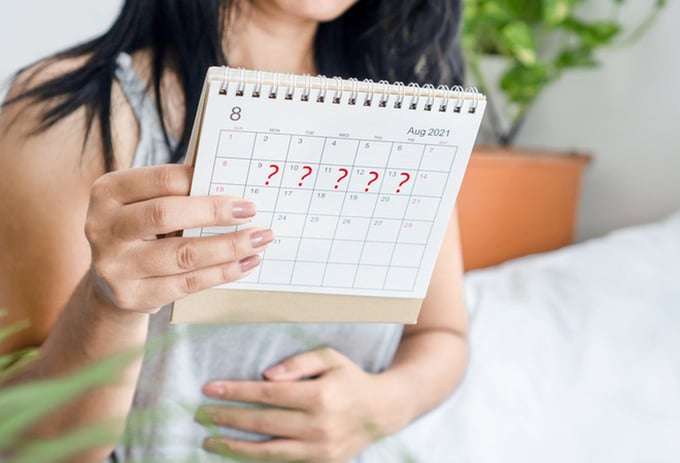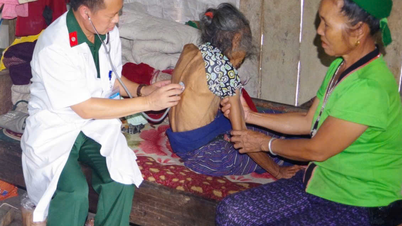According to the NIH, each person's daily energy needs depend on many factors such as age, gender, weight, height, and basic activity level.
Typically, women need about 2,000 calories per day to maintain their weight and 1,500 calories to lose weight. Men need about 2,500 calories per day to maintain and 2,000 calories to lose weight. However, these are general estimates and each person needs to adjust based on their individual needs.
Once the amount of calories taken into the body is too low, the body will have difficulty performing and operating basic biological functions including movement, mood, etc. Below are some signs that the body is lacking energy.
Feeling hungry all the time
Hunger is the first sign that we are not eating enough. Increased appetite occurs when a person is on a strict calorie deficit, causing changes in hormone levels that control hunger and satiety.
Furthermore, fasting has been shown to increase the production of cortisol, a stress hormone linked to hunger and increased belly fat.

Illustration
While a lack of calories can increase hunger, according to Healthline, some studies have also shown that a calorie deficit diet maintained over a long period of time can make you less hungry and reduce cravings. However, cutting calories to lose weight needs to be done properly, ensuring that the body still provides enough nutrients for the organs to function normally.
Hair loss
Dietary deficiencies of nutrients such as protein, biotin, iron and other nutrients are common causes of hair loss.
If you notice increased hair loss, this could be a sign of a calorie-deficient diet or a signal that your body is not getting enough important nutrients.
Constantly tired and irritable
Calories are the source of energy for cells and if not supplied with enough energy through diet, the body will start to use stored energy from fat and muscle, which can lead to more fatigue.
In addition, the neurotransmitters that send signals to the brain to maintain mood also need calories to function properly. When people do not get enough nutrients, they are more likely to feel depressed, unhappy, and irritable than usual.

Illustration
Constipation
Constipation is one of the signs of a calorie-deficient diet because consuming less food equates to less waste in your digestive tract, especially if the diet is low in fiber.
More frequent illness
According to Healthline, a 2016 study found that eating fewer calories is linked to immune system dysfunction. This means you may get sick more often if you don’t get enough nutrients from your diet to maintain a healthy immune system.
Important nutrients for a well-functioning immune system include certain amino acids - arginine and tryptophan - and other minerals and vitamins such as zinc; selenium; vitamin A; B vitamins including B1, B2, B3 and B12; vitamin C; and vitamin D.
Menstruation "disappeared"
The hypothalamus is an extremely important part of the body that helps maintain hormonal balance, including reproductive health. It receives signals from the body to know when to adjust hormone levels. Normally, the hypothalamus produces hormones that stimulate or inhibit the production of estrogen, progesterone, and other hormones.
When calories or body fat percentage drop too low, these signals can be impaired, leading to changes in the amount of hormones released.
Without the proper balance of reproductive hormones, pregnancy cannot occur. Menstrual cycles may also “disappear”. So if you have not had a period for 3 months or more, you should see a doctor for a check-up.

Illustration
Skin problems
Not eating enough can easily cause negative skin problems. In some cases, the skin can become thinner, more wrinkled, and even peel or crack. Skin damage can occur such as easy bruising, broken blood vessels under the skin, and even conditions such as purpura.
In addition to the above conditions, poor sleep, muscle loss, constant thinking about food, severe headaches... can also be signs of insufficient calorie intake and nutritional deficiencies.
Source: https://giadinhonline.vn/7-dau-hieu-cho-thay-dang-nhin-an-qua-da-d199337.html






































































































Comment (0)